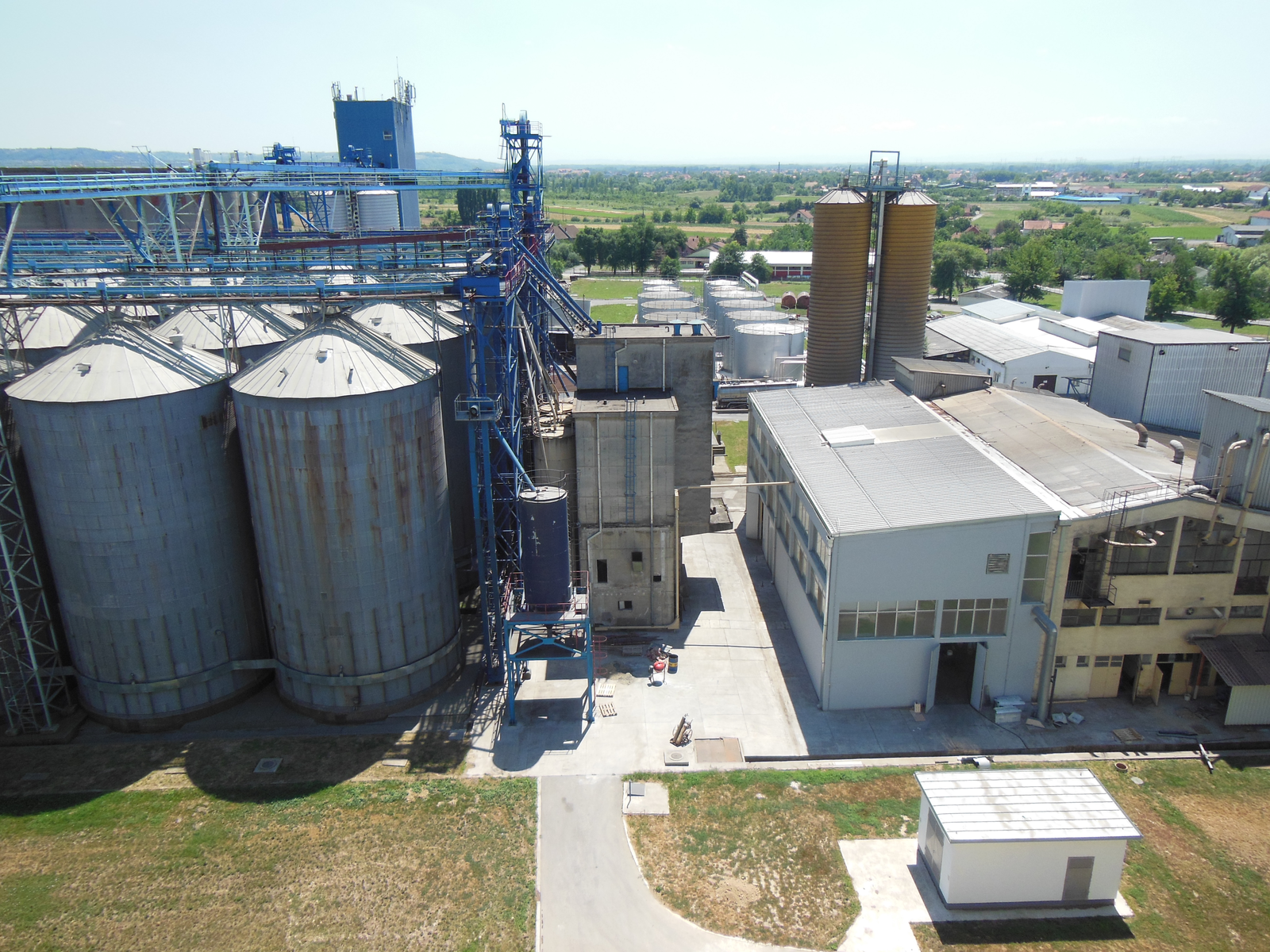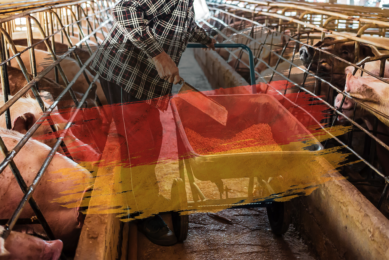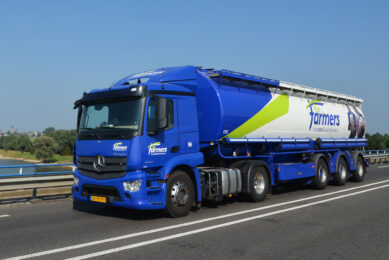The Serbian Bankom Group grows on all fronts

By the end of the year the Serbian Bankom Group will open a new feed plant in Belgrade. After developing the production of soy flour and milk replacers since 2004 and the premix since 2008, the Bankom group plans to grow on all fronts.
By Philippe Caldier
During Eurotier in Hanover last November the Bankom Group were the only Serbian company to exhibit at the trade fair. “The international Bankom Ltd trade company started in 1992”, says founder and director Milan Pesut from the headquarters of Zemun, a suburb of Belgrade. “We started trading with different agricultural products and quickly realised the great potentialin ingredients for animal feed,” Pesut continues. Since then his company has become an importer of vitamins, lysine, amino acids for various French companies, including Rhône-Poulenc and Eurolysine. Beyond these trading activities the Bankom Group took its first steps into animal nutrition. In 1996 the feed and premix Farmavit production unit in Ljubinje was created just south of Bosnia and Herzegovina. “It was a complete new plant delivering 3000 tonnes per month,” says Milan Pesut adding that it was the first project in the region after the end of the war. In the same period the group renovated farms for broilers and laying hens. Four years later, Bankom Ljubinje built an abattoir and a poultry meat processing plant and created IMEL Meat Industry. The Ljubinje site has not been left behind in terms of investment, as it is about to inaugurate a pork processing unit that manufactures mortadella using Italian technology.
24,000 tonnes of soya processed/year
The portfolio of the group expanded significantly in 2003 with the recovery of BioProtein, a company that produces flour and soybean oil at Obrenovac, a small town 30 km from Belgrade along the Sava River. From an existing plant in disrepair, the Bankom Group invested heavily into building a modern unit specialising in animal nutrition products based on soya. “We went from 2,000 t to 23-24,000t soybean processed per year,” explains Perica Damljanovic, veterinarian in charge of production. He emphasises that the company uses only non-GMO soya from Serbia. “Soybeans grow mainly in the north and central regions. We have contracts with farmers to ensure a high quality steady supply,” says Nebojsa Jovicic, export / import manager in charge of quality. Harvested in late August, the soy is controlled first on site (via ‘Good Monitoring Process’) and then by the laboratory of the Obrenovac plant (chemical, microbiological controls, GMO). The production of soybean meal with Biopro brand (well-known with Serbian farmers) remains the flagship product manufactured by the factory in Obrenovac. The manufacturing process starts by grinding and shelling soybeans, followed by pre-cooking to eliminate the anti-nutritional factors and ending with cooking. The most complex and most difficult stage is takes place in four steamers, each having five levels of cooking gradually ranging from 90-120°C, and for 15-20 minutes. The product obtained after cooking are then pressed to separate the oil from the final product. “Our transformation process is completely natural without the use of hexane or other chemical solvents. We only use water steam at 170°C and six bars of pressure,” says Perica Damljanovic adding that the key point of this technique is the temperature control at each level of the cooker.
The Bankom Group is currently in the process of doubling the capacity from 100 to 200t per day. “We will grow from four to six cookers, working around the clock. Three cookers will be dedicated to the production of soybean meal for animal feed and three dedicated to human nutrition,” says Perica. Future investments include a pelleting press from Greece and a cooker from China. “BioProtein has more than 200 customers in the livestock feed industry in Serbia, from the smallest to the largest. Besides that we export to many countries such as Germany, the Netherlands, Poland, Russia, Ukraine, the north Africa, and of course the neighbouring countries of former Yugoslavia,” said Mladen Tucovic, in charge of International Sales.
Milk replacers
In 2004 BioProtein started with the production of milk replacers, the Ekolak range. The manufacturing unit, joined to soybean meal, produces from 10 to 15,000t per year of milk replacers for various animals. The total capacity is 50,000t per year. These milk replacers involve five raw materials, the main one is soybean meal produced on site. The manufacturing unit is fully or semi-automated and is run by four people. “Until 2013, trade barriers prevented us from exporting our milk replacers into Europe,” said Mladen Tucovic. He is now considering exporting milk replacer which were until now essentially sold only in the Serbian market. The latest investment on the site of Obrenovac was done in 2008 and consisted of a premix manufacturing unit for all types of animals. “We produce standard premix or tailored ones,” says Perica Damljanovic. The manufacturing unit uses only the DSM vitamins and produced 1000t in 2012 for a capacity of 5000t. “BioProtein received an ISO 9001 certification in 2007 and the prestigious German certification TÜV in 2008, not to mention the GMP+ certification in November 2011 and the Kosher certification in February 2013 for the entire processing of soybean,” concluded the site director at the end of our visit.
In addition to products for animal feed BioProtein provides the food industry with soybean oil and a wide range of soybean meal more or less cooked or high in fat. The company has two significant advantages: a battery of silos that can store 100,000t of raw materials (the largest facility on one site in Serbia) and close proximity to port facilities on the Sava. “From the Sava, we can reach the Danube and the Black Sea,” says Damljanovic. During the Hannover Fair they made a deal to export soy flour to Bangladesh, perfectly possible with access to the Sava port.
A new feed plant
But the Bankom Group did not stop there. Truckloads of Italian equipment are expected to equip a new feed plant, the group plans to open this plant in late 2013. Representing an investment of approximately €2 million, the construction of the fourth unit on the Obrenovac site started in August. The capacity of this plant will be 10 t/h with three types of feed being produced: ruminants, pigs/poultry, fish and pet food. The project will have two lines of granulation (one of 15 t/h and another 5 t/h of Italian brand Simi) and two extruders 2 and 4 t/h respectively, one from the Chinese brand Zhongtian Agro. “This project is perfect for us and complements our expertise,” says the director of Bankom who added, “Our feed plant will be one of the most profitable of the market.”











